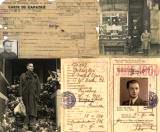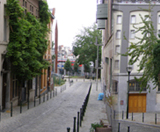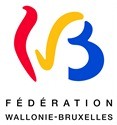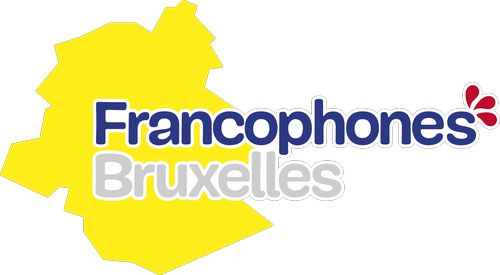New videos (only partially in English)
Film “Rwanda 94”
An attempt at symbolic reparation to the dead, for use by the living
On April 6 1994 a plane carrying Juvénal Habyarimana, President of Rwanda, was shot down. In only a few hours the country’s capital, Kigali, was controlled by barriers manned by Interahamwe militia and soldiers. The hunt for political opponents and every member of the Tutsi “ethnic group” had begun. It lasted three months. In less than a hundred days, nearly a million men, women, children and old people were massacred in the towns, on the hills, in churches, schools and hospitals, using machetes, clubs, guns and machine guns, or drowned or burned alive. The third genocide officially recognized by the international community during the last century took place in full view of the entire world. It had been foreseen by experts for many years, preceded by large-scale massacres in 1992 and 1993, and predicted by a commission of enquiry of the International Human Rights Federation in 1993, with the President’s entourage clearly designated as those responsible. An armed UN force commanded by General Dallaire was on the spot. Three months previously the general had sent the UN Secretary-General an urgent message describing the preparations for the planned slaughter. Not only was nothing done, but after the murder of ten Belgian UN troops, the UN forces left the country in a body, thus removing all obstacles to the completion of the genocide.
During those three months of hell, some countries waged a diplomatic war to prevent the slaughter from being defined as a genocide, so that international intervention against the Rwandan government as stipulated by the Genocide Convention could be avoided. Towards the end, France snatched a mandate to intervene and launched Operation Turquoise. Although the genocide itself had been almost invisible on TV screens, a media explosion accompanied the French forces into Africa. In the end Turquoise saved some lives, but it mainly protected the flight of the murderers, and supported the mass emigration of a terrified population still controlled by the perpetrators of the genocide. The real goal of the operation seems to have been less to put an end to the genocide, than to halt and restrict the victory of the RPF (the Rwandan Patriotic Front), which was mainly composed of Tutsi exiles.
The genocide destroyed the lives of hundreds of thousands of families. The survivors will bear its scars forever. They were left to form a small minority in a shattered country. Many felt abandoned and misunderstood, and many were victims of serious mental and physical problems. Often their living conditions were miserable. Groupov’s work is dedicated to those survivors, in a way the living dead, and to the memory of their murdered friends and relations - they are its inspiration and its voice.
The Liège theatre company Groupov began to develop RWANDA 94 in 1996, inspired by a violent revolt against the events themselves: a genocide perpetrated amidst general indifference and passivity. It was also a revolt against the presentation of the events as news on TV and radio, and in the press. This “staging” of the news is one of the subjects of the piece, whose artistic director is Jacques Delcuvellerie. The project, which brought together an international team including Rwandan performers, took shape over four years, with public presentations of the different stages of the work. The last of these took place at the Festival of Avignon in 1999, before its creation at Liège and Brussels in March-April 2000. For the next five years this “attempt at symbolic reparation to the dead, for use by the living” was presented worldwide. The film of RWANDA 94 will soon be on offer to the public in the form of a boxed set containing both the piece itself and two documentaries by Marie-France Collard: Rwanda. À travers nous, l’humanité… and Bruxelles-Kigali. The first of these films was shot during the tenth commemoration of the genocide in Rwanda, where the piece was presented for the first time. It records this exceptional meeting with the Rwandan public, but begins with the concerns of the survivors at the ceremonies of exhumation, when violence still waits on the sidelines or words can finally pierce the carapace of silence ... The second film was made on the occasion of the trial at Brussels, in November 2009, of one of the leaders of the criminal Hutu militia, the Interahamwe. Concurrently with the court hearings, it closely records the emotions and reflections of the survivors, who, 15 years after the facts, regularly encounter other Rwandans who are suspected of taking part in the genocide, but who will no doubt never be tried. The Auschwitz Foundation supported this initiative.
Extract 1 (in French)
Extract 2 (in French)
A film by Marie-France Collard and Patrick Czaplinski, made in April 2005 during the final performances of RWANDA 94 at the Théâtre de la Place (Liège).
Authors: Marie-France Collard, Jacques Delcuvellerie, Dorcy Rugamba, Yolande Mukagasana, Jean-Marie Piemme, Mathias Simons
Collaboration with the text: Tharcisse Kalisa Rugano
Composition and musical direction: Garrett List
Director: Jacques Delcuvellerie / Assistant director: Mathias Simons
Realization: Marie-France Collard and Patrick Czaplinski
Director of photography: Rémon Fromont
Film editing: Vincent Brasseur – RTBF
Sound editing: Jeff Levillain
Sound mixing and mastering: Jean-Pierre Urbano – Border Arts Studio
Production: Philippe Taszman for GROUPOV, Michel De Kempeneer for Parallèles Productions and the RTBF
Production assistant: Aurélie Molle / assistant: Carole Urbano, 2007
A Groupov production, co-produced by the RTBF and Parallèles Productions.
With the support of:
The Belgian French Community Cinema and Audiovisual Center, the Walloon TV companies and Technocité – Décret Mémoire – The Wallonia-Brussels Federation – The CBA, WIP – EA 4414 “History of Arts and Performances,”, University of Paris Ouest-Nanterre, directed by Christian Biet. ANR SETH program on “Violence, wars, conflicts”, University of Paris Ouest-Nanterre, directed Christian Biet – the Brussels Auschwitz Foundation – AfrikaFilmFestival
Some of our projects
Contact
Auschwitz Foundation – Remembrance of Auschwitz
Rue aux Laines 17 box 50 – B-1000 Brussels +32 (0)2 512 79 98
+32 (0)2 512 79 98 info@auschwitz.be
info@auschwitz.be
BCE/KBO Auschwitz Foundation: 0876787354
BCE/KBO Remembrance of Auschwitz: 0420667323
Office open from Monday to Friday 9:30am to 4:30pm.
Visit only by appointment.
![]()
![]()
![]()
![]()
![]()
Become a member
To become a member of Remembrance of Auschwitz ASBL, please contact us and transfer the sum of €50.00 to our account IBAN: BE55 3100 7805 1744 – BIC: BBRUBEBB with the communication: ‘Membership fee 2025’. The membership includes two issues of 2025 of our scientific journal.
DONATIONS
Donations of €40.00 or more (in one or more instalments) qualify for tax exemption for Belgian taxpayers.
In communication, please specify that it is a ‘Donation’ and mention your National Number which is required since 2024 to benefit from the tax exemption.
Subscribe
Error : Please select some lists in your AcyMailing module configuration for the field "Automatically subscribe to" and make sure the selected lists are enabled










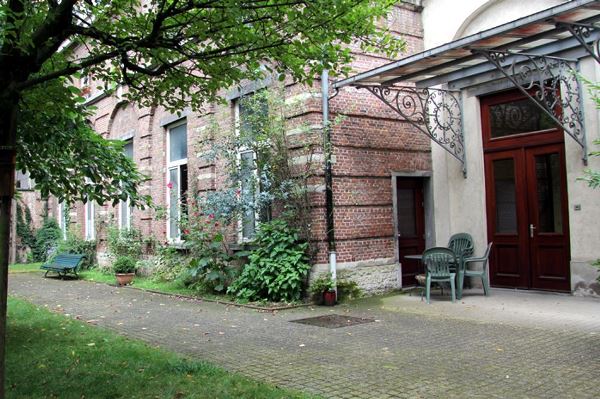 The Auschwitz Foundation was founded in 1980 by Paul Halter, an Auschwitz survivor. Replacing the Amicale Belge des Ex-Prisonniers politiques d’Auschwitz-Birkenau Camps et Prisons de Silésie, the primary objective of the Auschwitz Foundation is to study the history and memory of the victims of the Holocaust and the Nazi terror in a sustainable and systematic way. The transmission of memory and the preservation of archives concerning these events complete this goal.
The Auschwitz Foundation was founded in 1980 by Paul Halter, an Auschwitz survivor. Replacing the Amicale Belge des Ex-Prisonniers politiques d’Auschwitz-Birkenau Camps et Prisons de Silésie, the primary objective of the Auschwitz Foundation is to study the history and memory of the victims of the Holocaust and the Nazi terror in a sustainable and systematic way. The transmission of memory and the preservation of archives concerning these events complete this goal.
